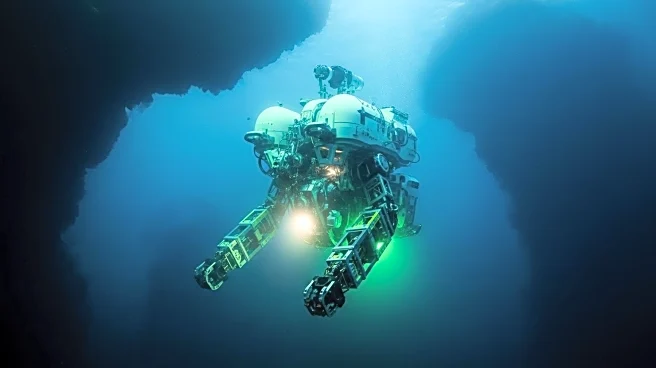What's Happening?
The research vessel Falkor (too) experienced technical issues, forcing the 'Uruguay SUB 200' expedition to return to port for repairs. The vessel, owned by the Schmidt Ocean Institute, suffered a malfunction with its A-frame structure used for deploying underwater equipment. The expedition aimed to explore marine ecology and underwater archaeology in Uruguayan waters, involving 37 scientists from 18 institutions.
Why It's Important?
The setback highlights the challenges faced by scientific expeditions in remote and demanding environments. The malfunction underscores the importance of reliable equipment and infrastructure in conducting successful research missions. The expedition's goals of studying marine ecosystems and sharing findings through live broadcasts emphasize the value of scientific exploration in understanding and preserving oceanic environments. The situation calls for increased investment in research vessels and technology to support future missions.
What's Next?
The Falkor (too) will undergo repairs before resuming its expedition. The scientific team remains committed to exploring the deep sea and sharing their findings with the public. The incident may prompt a review of equipment and safety protocols to prevent similar issues in the future. Continued collaboration between international research institutions is essential for advancing marine science and addressing global environmental challenges.
Beyond the Headlines
The expedition's interruption raises questions about the resilience of scientific infrastructure and the need for innovation in research technology. It also highlights the importance of international cooperation in advancing scientific knowledge and addressing environmental issues. The situation may inspire discussions on the role of technology in supporting sustainable exploration and the ethical considerations of conducting research in sensitive marine environments.











